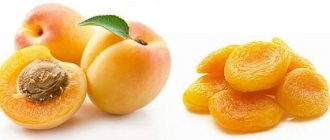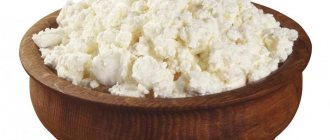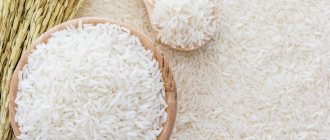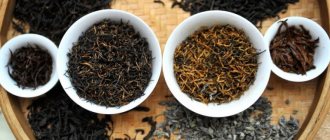Published: 01/24/2018 Updated: 07/21/2021
Many nutritionists recommend sweeteners as a healthy, low-calorie, and safe alternative to sugar. But are they really that useful?
Despite the fact that previously sweeteners were recommended only as part of a specialized diet for diabetics, today almost everyone knows and uses them. The trend towards a healthy lifestyle has played a significant role.
Sugar free
People usually stop eating sugar for two reasons: the desire to lose weight or health contraindications.
It’s no secret that sugar is a breeding ground for pathogenic bacteria in the gastrointestinal mucosa, and this causes various inflammatory processes. It increases the level of so-called blood glucose and causes insulin resistance, resulting in type II diabetes mellitus and destroys collagen fibers. Sweet lovers increase blood clotting, which increases the risk of thrombosis. And this is just a small part of the sugar horror stories. It is important to know: sugar does not interfere with the body’s normal functioning if consumed in an amount of no more than 30 g per day. Anything in excess causes a lot of different health problems, which usually manifest themselves after a while.
If the decision to give up sugar has been made, do not rush to become disheartened by the inability to please yourself with your favorite delicacies. At first, the process may seem complicated, but the problem can be solved with the help of sweeteners. Moreover, today stores offer a large selection of natural and artificial sugar substitutes, which, of course, differ in certain characteristics, but they are not difficult to understand.
So, sweeteners are synthetic and natural. Synthetic, or artificial, are obtained from chemical compounds. Natural are of natural origin. Both differ in energy value: artificial ones have a low calorie content or are calorie-free, but can have a negative effect on the body, natural ones come in different calorie contents, but are broken down more slowly than sugar, without causing a sharp release of insulin into the blood.
Synthetic sweeteners are sweeter than sugar. Thanks to this, they can be used in small doses. Natural ones can be either more sweet compared to regular sugar (fructose, stevia) or less (sorbitol, erythritol). For example, stevia and erythritol, being natural, contain no calories at all and do not participate in carbohydrate metabolism. They are not harmful to health, but you still shouldn’t use them thoughtlessly; you don’t eat sugar with spoons either, do you?
Photo by Olga Pak.
Which substitute to choose
Which sweetener is better to choose? Now among the best substitutes are Sucralose and Erythritol.
If you have any problems with the gastrointestinal tract, diabetes mellitus, or have experienced food allergies, be sure to consult your doctor before taking sweeteners.
It is not recommended to introduce substitutes into the children's menu. It is better for parents to monitor their children's consumption of sweets.
Sugar is present in almost every product and it is impossible to completely eliminate it from the diet. However, reducing its consumption to a minimum is quite possible.
Natural alternative
Fructose
. Oddly enough, it raises the most questions and concerns. For quite a long time it was considered the best alternative to regular sugar, since it does not affect insulin levels. In addition, it is 1.5 times sweeter.
Why should it be consumed in moderation? Firstly, fructose, like many poisons, is broken down in the liver. Neither the brain nor the muscles know how to use it, unlike glucose, for example. But the liver processes only part of it, so when there is too much fructose in the diet, it turns into fat reserves.
The daily intake of fructose is 30-45 g.
Sorbitol
. Found naturally in stone fruits and algae. It has a low glycemic index - 9 units, but is high in calories like sugar, so it should not be used for diabetes and weight loss. Daily consumption is no more than 40 g, ideally 15 g. The fact is that excessive use of sorbitol gives a laxative effect, although such a disadvantage is typical for all sweeteners. The question is the daily dose.
Er ytrite
. The popular natural sweetener contains virtually no calories (0.2 kcal per gram) and does not affect blood sugar levels. It is also safe for teeth and does not cause caries, since, having virtually no energy value, it is not a source of food for pathogenic microorganisms. Actively used in the food industry.
Stevia
. Perhaps the most popular natural sweetener today. Stevia is 200-400 times sweeter than table sugar, is absolutely safe and has no contraindications for use. It has a rather specific taste, so manufacturers purify it in such a way as to eliminate this drawback as much as possible.
Side effects and dangers
May cause diabetes
A study published in the journal Diabetes Care suggests that consuming sucralose increases the risk of developing diabetes. According to this study, daily consumption of diet soda increases the risk of metabolic syndrome by 36% and type 2 diabetes by 67%.
This means that sucralose is among the causative agents of diabetes. Thus, it should be avoided by those who are at risk, as this substance can lead to serious negative consequences.
Scientists first noticed a similar trend in studies involving volunteers. Seventeen insulin-sensitive obese volunteers completed an oral glucose tolerance test after taking sucralose or water.
In addition to the fact that after taking the sweetener, insulin sensitivity decreased by 23%, which prevented the absorption of glucose into cells.
A more recent 2021 study published in the journal Cell Metabolism found that consuming sucralose along with carbohydrates leads to rapid disruption of glucose metabolism and therefore the regulation of glucose metabolic control between the brain and the gut.
Increases the risk of irritable bowel syndrome and Crohn's disease
Several years ago, Xin Kin, MD, of New Jersey Medical School, USA, discovered that sucralose consumption contributed to symptoms of IBS, ulcerative colitis and Crohn's disease. Dr. Keane made this discovery while studying a dramatic spike in IBS cases in Alberta, Canada, over a 20-year period. The incidence increased by 643%.
The statistics prompted Dr. Keene to begin her research. And what did he discover?
Sucralose has proven to be much more detrimental to beneficial gut bacteria than other artificial sweeteners, such as saccharin. The fact is that from 65% to 95% of sucralose is excreted unchanged in the feces. In 1991, Canada became the first country in the world to approve the use of sucralose as an artificial sweetener. In other words, there is a direct relationship between the amount of sucralose consumed and an increase in the incidence of inflammatory bowel disease.
A recent study that appeared in the journal Inflammatory Bowel Diseases found that the use of artificial sweeteners such as Splenda doubles the risk of developing Crohn's disease and may impair gut antimicrobial activity in patients suffering from Crohn's disease and other pro-inflammatory conditions. .
In some cases, sucralose may cause bloating as it is associated with a number of serious pro-inflammatory conditions that affect the functioning of the digestive system. It can also worsen inflammation and, in some cases, cause symptoms of IBS.
Associated with leaky gut
Since our body cannot digest sucralose, it passes through the gastrointestinal tract unchanged, damaging the intestinal walls. This can lead to leaky gut syndrome.
A number of studies have confirmed the harmful effects of sucralose on the intestines. Thus, the Journal of Toxicology and Environmental Health published an animal study conducted by Duke University Medical Center, USA, which stated that Splenda not only significantly reduces the number of beneficial bacteria in the intestines, but also increases stool pH. This indicates a decrease in the amount of nutrients that the body absorbs.
When heated, can form toxic and carcinogenic compounds
A study published in the Journal of Toxicology and Environmental Health found that when exposed to high temperatures, sucralose can produce dangerous chloropropanols, a possibly toxic class of compounds. Sucralose is used primarily in baking, and research suggests that the stability of this artificial sweetener decreases as temperature and pH increase.
When heated, not only does sucralose decompose, but also the formation of chloropropanols, a group of pollutants that includes genotoxic, carcinogenic and tumor-forming compounds.
In a study published in the journal Food Chemistry, scientists concluded that "caution should be exercised when using sucralose as a sweetener in baked goods containing glycerol and lipids."
It is worth noting that further research is required on the effect of sucralose on cancer development. However, given that the sweetener is most often used in foods that need to be cooked, the results may be disappointing.
Associated with weight gain
Do you think sucralose in your coffee will help you lose weight? It turns out that epidemiological studies in volunteers and laboratory studies on animals have found a relationship between the use of artificial sweeteners and weight gain.
Moreover, sweeteners may increase the risk of metabolic syndrome, type 2 diabetes, hypertension and cardiovascular disease. These studies did not specifically evaluate the effect of sucralose on weight gain, but other studies have also found no connection between sucralose and weight loss.
In an 18-month experiment published in the New England Journal of Medicine, 641 children (477 completed the study) were randomly assigned to groups. One of them received 250 ml of a sweet drink containing no calories every day, the second received a drink with sugar containing 104 calories.
The sugar-free drink contained 34 mg of sucralose and 12 mg of acesulfame K. By the end of the experiment, the sugar-sweetened drink group consumed 46,627 more calories.
However, overall weight gain was only 1 kg more compared to the group that drank sugar-free drinks. Scientists cannot explain such a slight difference.
Another study of adolescents found no significant decline in recruitment rates two years after families were offered sweetened drinks instead of sugar-sweetened ones.
Does this mean that sucralose promotes weight gain? Well, we know that in most cases it does nothing to help you lose weight. And for people who use a sweetener in baking, cooking, or drinks to track calorie intake, sucralose is not an effective weight loss method.
Side effects from sucralose and products containing Splenda have been reported, including headaches and allergic reactions. In addition, a recent study found that sucralose consumption negatively affects gut health and even causes metabolic syndrome.
If you are considering using sweeteners to lose weight, keep in mind that research has not proven their effectiveness. Instead, look to natural, lower-calorie sweeteners such as raw honey and stevia
Artificial analogues
Aspartame
. One of the most popular sweeteners. It is 200 times sweeter than sugar and has minimal calorie content. It is not often used in the food industry, as it has a significant drawback - it decomposes at high temperatures. This means that it is definitely not suitable for dishes that are subjected to prolonged heating or boiling.
Cyclamate
. It has a pleasant sweet taste, no long aftertaste, it is quite reminiscent of the usual sugar. Does not provoke caries, quickly dissolves in hot liquids and contains no calories. This allows cyclamate to be widely used even in the production of drugs.
Saccharin
. Another bright representative of artificial sweeteners. It can be found not only as an independent sweetener, but also in our usual products. Additive E954 on the soda label marked zero is saccharin.
Sucralose
. Considered one of the safest sweeteners. It contains no calories and does not affect blood sugar levels. Perhaps the most significant advantage of this sweetener is its taste, close to regular sugar. Sucralose completely retains its qualities during cooking (heat treatment and freezing), which means it compares favorably with other artificial sweeteners.
Reasonable consumption of both sweeteners and sugar does not pose a health risk. However, do not forget: losing extra pounds does not mean gaining good health.
Products and Use
Sucralose, or "Splenda", is used in many foods and drinks to make them "healthier". Sometimes, when choosing a product in a store, we don’t even suspect that it contains sucralose.
It can even be in toothpaste, cough drops or vitamins.
Before purchasing, read the composition of the product. Sometimes products that say “sugar-free,” “light,” or “0 calories” contain sucralose. Don't trust these labels because they hide artificial sweeteners.
Sucralose is often found in foods such as:
- carbonated drinks
- mineral water
- diet iced tea
- juice
- “sugar-free” sauces, dressings and syrups
- chewing gum
- cocoa drinks "no added sugar" or "no fat"
- some protein powders, bars and shakes
- sugar-free baked goods
- ice cream labeled “diet” or “sugar-free”
- popcorn
- "light" yoghurts
- sugar-free candies
- "low calorie" chocolate
- mint lozenges and lollipops
- toothpaste
To eat or not to eat
The benefits of using sweeteners in the diet have been proven in numerous studies.
Perhaps the most important recommendation is not to exceed the permissible daily dose. As a rule, the manufacturer indicates such information on the product packaging. She shouldn't be neglected. — The main complaint about artificial analogues is their special behavior during heat treatment, —
says Tatyana Musick.
— For example, aspartame and cyclamate do not tolerate high temperatures.
They decompose and can negatively affect the body. This should definitely be taken into account during culinary experiments. But sucralose, stevia, and erythritol are not afraid of temperature changes. Feel free to use them in your kitchen. It’s worth reminding: all sweeteners have a laxative effect. Take the time to look at the back of the product packaging or the sweetener itself. Even well-known analogues of sugar in tablets are consumed in a strictly limited dose.
— Tea drinkers would do well to have honey in their arsenal. It is a good source of vitamins and also has an immunomodulating effect. Just don’t add it to hot tea, as this will destroy the beneficial properties. Eat with a bite. One or two spoons will be enough, -
reminds me of a nutritionist.
Particular attention is paid to children's nutrition: on average, until the age of two, a child, in principle, does not need sugar. As for sweeteners, scientists agree: only stevia is suitable for baby food. Again, not earlier than two years.
Safety
At the moment, there is no conclusive evidence of the harmful effects of sweeteners on health.
From time to time, scientists present experiments with the conclusion that sugar substitutes can cause migraines, depression, intestinal problems, etc. However, the results of the studies are contradictory: in one experiment the risk is confirmed, in another it is not. And although the conversation, as a rule, is about the dangers of large doses of sweeteners, the headlines of some scientific articles maintain an alarming tone among both doctors and sweet tooths. Don't worry about this: all sweeteners that end up on store shelves receive appropriate approval. Potentially dangerous products simply do not reach consumers.
— Reasonable consumption of both sweeteners and sugar does not pose a threat to health, —
says the nutritionist.
- However, do not forget: losing extra pounds does not mean gaining good health. When choosing a sweetener, it would be good to consult with a nutritionist or therapist. A competent opinion will help in choosing “your” product.











